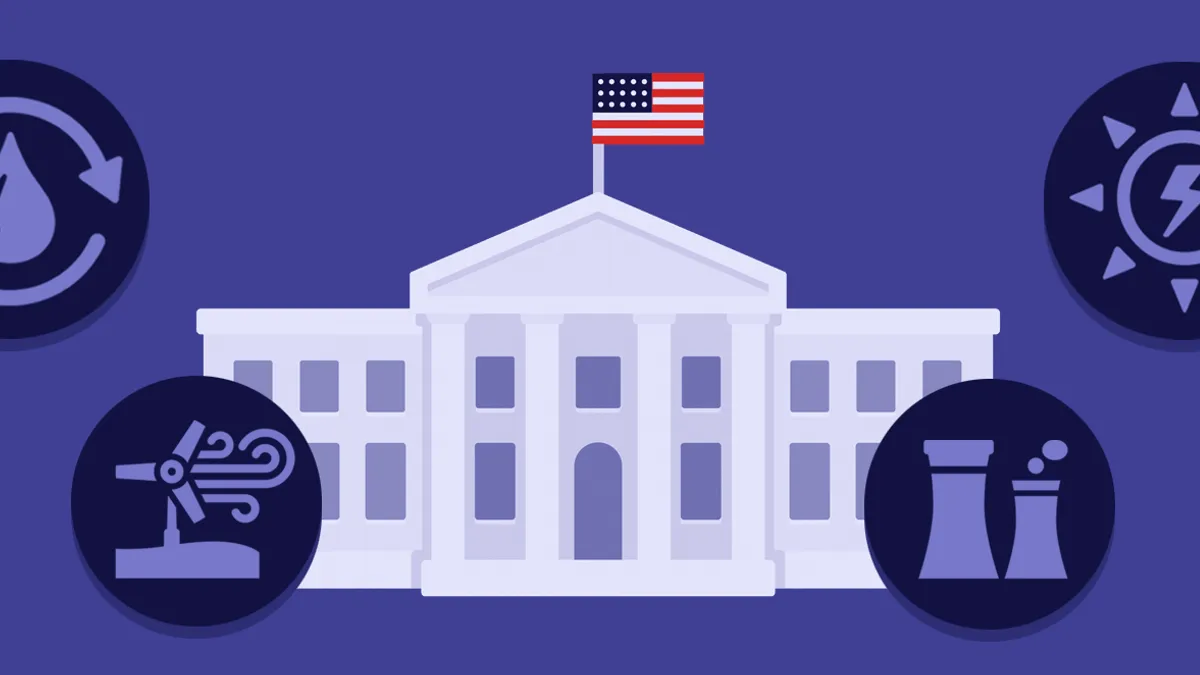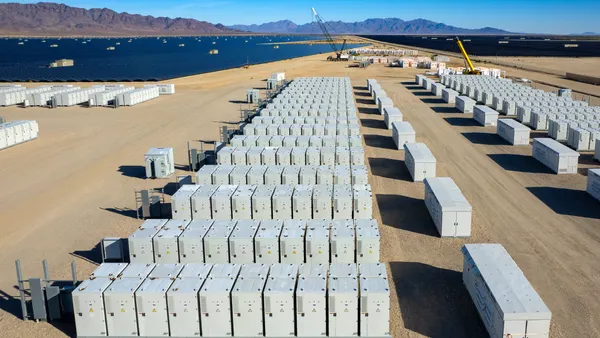Dive Brief:
- President Joe Biden's $1.52 trillion budget request for Fiscal Year 2022 includes a policy making standalone energy storage projects eligible for the federal investment tax credit (ITC), a move that advocates say will unleash new capital for renewable energy. The budget request also included new spending on storage as part of the administration's goal to decarbonize the energy sector by 2035.
- Biden's $2 trillion infrastructure proposal, known as the American Jobs Plan, also included the storage ITC proposal along with $100 billion in power grid investments.
- A Treasury Department report released last week stated that expanding tax incentives for storage would help put the country on a path to 100% clean electricity by 2035 and "help ensure that the electricity supply is reliable as well as less harmful to the climate."
Dive Insight:
Currently, energy storage is only eligible for the tax credits available for other renewable energy if it is integrated with other ITC-eligible solar installations. That has limited investment in technology that could make renewable energy more consistent and reliable for customers. The U.S. storage sector has grown significantly in the past few years, with more than 2,100 MWh installed in the fourth quarter of 2020 alone. The Energy Storage Association (ESA) has said the U.S. needs 100 GW by the end of the decade to support the power sector's clean energy transition.
"A federal tax credit for energy storage would have a transformative impact, promoting private sector investment and helping monetize the value of energy storage technology," said Gregory Wetstone, president and CEO of the American Council on Renewable Energy, in an email. Wetstone's group was one of more than 150 advocates that signed on to a letter in March calling on Congress to create a storage tax credit.
According to Wood Mackenzie energy storage analyst Chloe Holden, a preliminary analysis found that a 30% storage ITC enacted this year would increase the U.S. storage forecast by 20-25% over the next five years. The ITC provides a 26% credit for residential, commercial and large-scale utility solar installations and will begin phasing out over the next two years. Biden's infrastructure proposal would extend the phasedown for an additional 10 years.
Although the White House has not fleshed out its budget proposal, the request released last week includes $6.5 billion in loans for clean energy, storage and transmission projects in rural communities. The infrastructure plan, which seeks to create a net-zero emissions economy by mid-century, also includes $15 billion in climate research and development projects, including utility-scale energy storage.
The proposal of the ITC for storage along with other specific mentions signaled that the White House is thinking beyond power generation to a "systems" approach, said ESA interim CEO Jason Burwen.
"It's a great thing to see storage recognized directly in these plans," Burwen said. "It is a recognition of the central role storage will play in allowing renewable energy sources to supply customers reliably across the country." Burwen added that the tax credits will help drive investment in new technologies that may not be compatible with the solar systems that are currently eligible.
Although Biden's infrastructure plan has drawn opposition from some Republicans, there is a bipartisan proposal that would extend the ITC to residential battery systems and utility-scale energy storage. The Energy Storage Tax Incentive and Deployment Act was introduced by Sens. Martin Heinrich, D-N.M., and Susan Collins, R-Maine, and Reps. Mike Doyle, D-Pa., Rep. Vern Buchanan, R-Fla., and Rep. Earl Blumenauer, D-Ore.














